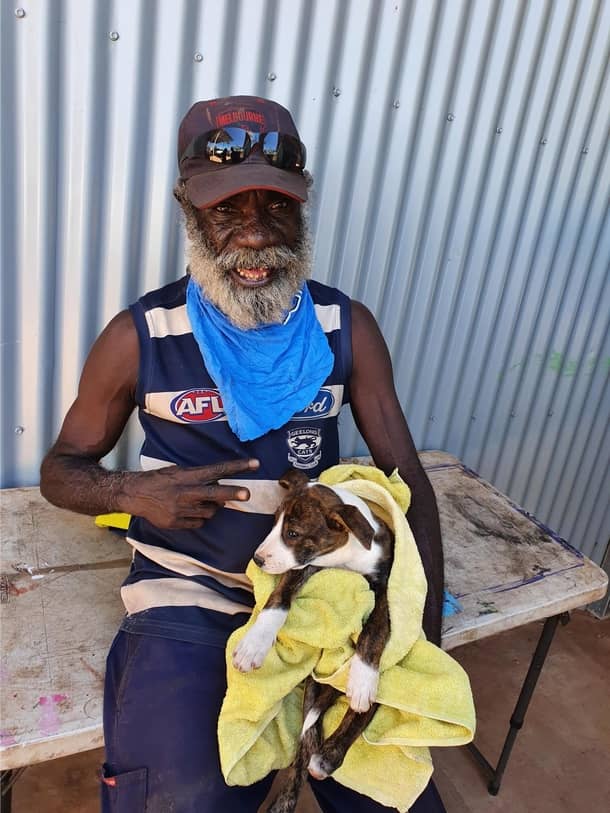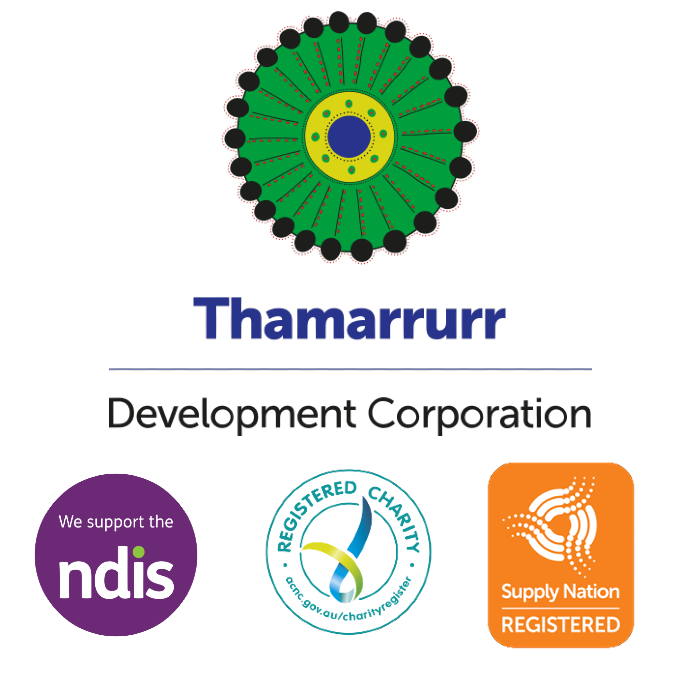Thamarrurr Development Corporation’s healthy homes team continues its commitment to improving health outcomes for pets in Wadeye.
In January 2021, Healthy Homes began its own Animal Management program called Healthy Pets & Healthy People in Wadeye. Every month the team get together to roll out a community-wide anti-parasitic treatment of all domestic pets.
This treatment helps reduce the cases of worms, heartworms, ticks, and mange. It improves the general well-being of the local pets and increases the health and well-being of our families. Healthy Homes participants also record the domestic pet population
The healthy homes team also collaborates with AMRRIC (Animal Management in Rural and Remote Communities) to provide assistance and resources for any animal-related health issues in the community. It is an important relationship as Wadeye is not serviced by a full-time veterinary clinic due to its remoteness and location.
Healthy homes and AMRRIC believe in a one health approach. There is an inseparable link between human, animal, and environmental health. By improving the health of our pets, we improve the health of ourselves and the community.
AMRRIC visits Wadeye and the surrounding areas twice a year for a one-week period. During this time, the team focuses on pets requiring more complex procedures, including operations and de-sexing. The team collect animals for AMRRIC and act as the engagement point between AMRRIC and the community. Animals are taken to the Healthy home’s resource centre which was built to facilitate initiatives such as this.
Each year AMRRIC also work with healthy homes on an animal census. Animals are tracked and logged by the team on an iPad application. They collect information such as physique, skin condition, number of animals and if an animal has been de-sexed. This information provides a snapshot of the overall health of the animal population of Wadeye. This information is then compared to data collected previously. It provides a better understanding of any patterns that are specific to Wadeye. It also provides data on animal health issues periodically over time. This allows both organisations to identify areas of improvement or concern. This can then guide the team while preparing animal management plans.
Healthy Homes have been seen as a solution to animal health problems in the past. The team often deals with preventable and less severe situations that could be addressed by the community. Therefore, the awareness and education the team provides to the community are vital.
Successful animal management in remote communities starts with positive perceptions of domestic animals. The more the community understands and takes a proactive approach toward animal management, the more successful a management plan will be.
“The animals we have living with us in our homes are like our family members. We need to look after them while they are in our homes” Cornelius Mollinjin-T.D.C broadcasting


